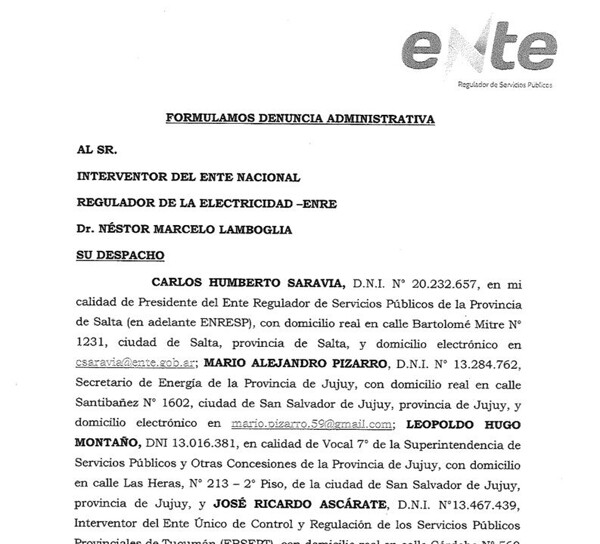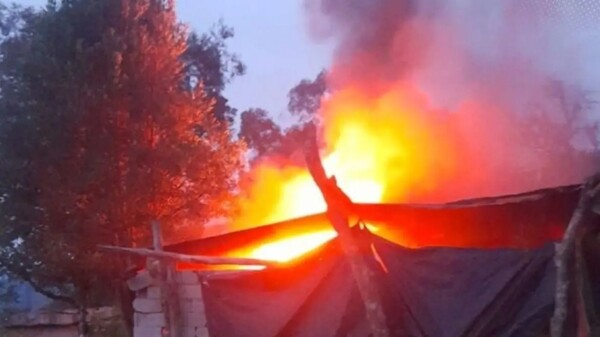
Country risk showed a sharp fall, and Argentine sovereign bonds traded with significant increases, reflecting renewed confidence in the country's ability to pay and the future of its economic plan.
This article was first published on Mendoza Today. Source: Mendoza Today
It warned Argentines that “voting for the left (referring to Peronism) was voting for higher inflation, a fall in the peso, and even more financial turbulence.”
This message, focused on the recent memory of the economic crisis, proved to be more powerful than criticisms of the current adjustment.
The logistical failure: the role of the mayors
The Wall Street Journal analysis also points to internal divisions and the lack of mobilization of the powerful territorial Peronist apparatus. According to the newspaper, the vote difference lay in the “lack of work by the mayors,” the local leaders who control the logistics of voting in the conurbano and other key areas.
The WSJ was blunt on this matter: Peronist mayors “made few efforts to persuade their most loyal people to come out and vote.”
The reason?
One third of the population is going through hard times.
This “vote of confidence,” as the international press called it, gives the government renewed political capital to advance its structural reform agenda and the “shock therapy” economic plan.
On the other side of the fence, Peronism and its various factions suffered one of their most severe defeats in decades.
The phrase, attributed since 1992 to the former US president, serves this time as one of the many explanations for the electoral result of last Sunday, October 26, when Argentina held its crucial mid-term legislative elections for the future of Javier Milei's administration.
Translating it to “criollo” (local slang).
“The poor Argentines, whom Eva Perón idolized as the heart and soul of the country, mostly stayed home,” noted the Journal.
This high abstention in the humblest electoral circuits was not an isolated fact, but “a stern rebuke to the Peronist movement that has dominated local politics for 80 years.”
The newspaper interprets that the lack of participation was not apathy, but an active “punishment vote” through absenteeism, aimed at a leadership that no longer represents solutions to their most urgent problems.
A dual movement: the middle class and popular neighborhoods
The WSJ highlights that the triumph of La Libertad Avanza was built on a dual electoral movement.
On the one hand, the passivity and abandonment of the Peronist base. The local structure, having saved its own skin, did not campaign for the national list.
Trump's support and the controversy with Washington
The article also dedicates a section to the geopolitical context and Milei's explicit alignment with the United States, particularly with figures like Donald Trump.
The Wall Street Journal considered Trump's explicit support for Javier Milei to be a “risky strategy.” The risk, according to the medium, was that some Argentines “feared the country was ceding too much power to Washington,” a sensitive issue for national sovereignty.
However, the WSJ concludes that the “bet paid off.”
On the other hand, a strong mobilization of another social sector. “At the same time, middle-class voters mobilized to rescue Milei and his revolt in favor of the free market,” they said.
This middle class, hit by inflation from the previous administration but hopeful with the current reforms, did go to the polls en masse to shield the government.
The strategy of fear of the past
The US medium also highlighted the effectiveness of the La Libertad Avanza campaign strategy. According to the WSJ, LLA “took advantage of voters' fear of a possible return of the Peronist movement.”
The ruling party framed the election in binary terms. The problems are many.
The immediate economic urgency outweighed any geopolitical debate.
The mandate: “shock therapy” vs. “economic ruin”
In summary, the October 26 election functioned as a plebiscite on the first stage of the libertarian administration.
“Milei gave voters a choice: to continue with his 'shock therapy' (as he describes it) for Argentina's ills, or face the economic ruin experienced with the Peronists in the past,” the WSJ concluded.
The results on Sunday indicate that, despite the harshness of fiscal adjustment and recession, a majority of voters chose to stay the course, out of fear that the alternative would be worse.
The market reaction: celebration and confidence
The immediate consequence of this “vote of confidence” was felt on financial markets Monday morning.
Regarding the market reaction, the newspaper noted that “investors rushed to buy Argentine assets,” interpreting the result as a guarantee of governability and deepening of pro-market reforms.
“Stocks and bonds soared and the peso strengthened against the dollar,” reported the WSJ.
This financial euphoria came after weeks of high volatility, caused by “concerns about Milei's ability to reform the economy and fight inflation, a crucial issue for voters.”
Milei's strengthened political position in Congress was read by Wall Street as a green light.
The results showed a resounding victory for the ruling party. La Libertad Avanza (LLA) achieved a historic electoral performance, surpassing expectations and consolidating itself as the leading national force.
The news made headlines worldwide, and the surprising margins, especially in the financial markets where Argentina has significant debt to raise, were shocking.
Although the libertarian party did not win its own majority in either chamber of Congress, the numbers represent a strong political endorsement.
But the voter understood that Peronism, let alone Kirchnerism, was not going to solve their problems. They no longer believe them.
Argentina renewed half of the Chamber of Deputies and a third of the Senate.
“They had little incentive to do so, as they had already secured their seats in the local elections in September,” they said.
“It's the hypocrisy, stupid,” would have said Bill Clinton.
Even more so when they think that a large part of those problems were generated by the K administrations.
They grew tired of waiting.
The newspaper suggests a divergence of interests. The explanation is pragmatic: “voters said they had more urgent concerns, like feeding their families.”
The setback was notable even in districts considered historical strongholds of the movement, marking a clear message of discontent from its traditional electoral base.
The Wall Street Journal Analysis
This new political landscape captured the attention of the world financial community. The influential American newspaper The Wall Street Journal (WSJ) dedicated a special edition to analyzing the elections and the consolidation of Milei's project.
The focus of the New York newspaper centered on a sociological phenomenon that explains the magnitude of the ruling party's victory and the opposition's debacle.
Under the headline “Poor Neighborhoods Abandoned Peronism and Gave Victory to Milei,” the WSJ assured that a historical pact in Argentine politics has been broken.
“The Stern Rebuke” to Peronism
The analysis delves into the fracture of the popular vote, traditionally captive to Peronism.














